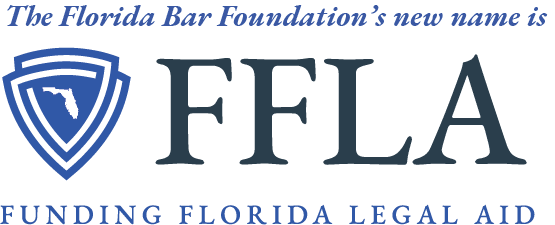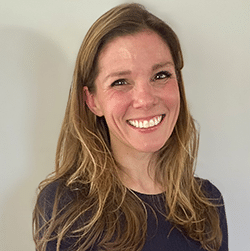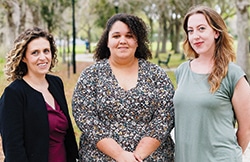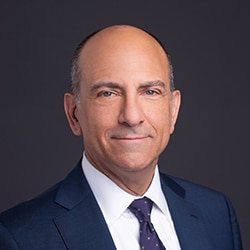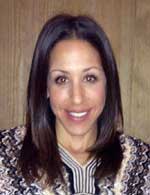
Caryn Lubetsky, HELP Executive Director
Their names are simple and inviting: HELP and CASA, the Spanish word for “home.”
These Miami-area organizations are as welcoming as possible by design because they work with two of the hardest-to-serve client populations. HELP Inc. (HIV Education and Law Project) provides legal assistance to people with HIV and AIDS, while CASA (Colombian American Service Association) offers legal counsel and representation to immigrants, including immigrant victims of domestic violence.
Outreach to both groups is challenging. Fear, poverty, language barriers, and a lack of knowledge of their rights are among the many factors that can keep people who are HIV-positive or victims of domestic violence from seeking help, even in potentially life-threatening situations. To overcome those barriers, both organizations offer a warm, personal, low-key atmosphere and work largely through word-of-mouth within the communities they serve.
The two organizations have another thing in common.
“Without The Florida Bar Foundation we would not be here today,” said HELP Executive Director Caryn Lubetsky, whose words are echoed by her counterpart at CASA, Anjenys Gonzalez.
Lubetsky started HELP in 1996 when she was fresh out of law school at the University of Miami. As a student, she had logged volunteer hours at the People with AIDS Foundation.
“It was overwhelming the legal issues they were facing,” said Lubetsky, whose organization helps with placement of children who have lost a parent to AIDS and assists people living with HIV and AIDS with housing, family law, accessing public benefits, health-care surrogacy and other legal issues. Preventing homelessness is a big emphasis, since most of the drugs that can keep HIV from developing into AIDS have to be refrigerated and taken on a strict schedule, a near impossibility for someone living on the streets.
With a $25,000 seed grant from the Echoing Green Foundation, Lubetsky was able to open HELP’s doors, but she was a one-woman operation until she was able to attract federal Ryan White funding and hire a few more lawyers and a paralegal. When the organization lost that funding in 2007, Paul Doyle, director of The Florida Bar Foundation’s Legal Assistance for the Poor Grant Program, recognized that a vital service was about to be lost and brought HELP’s story to the Bar Foundation board.
At about the same time, CASA was reeling from the results of a study conducted by experts at Florida International University, who found that domestic violence had affected more than 50 percent of CASA’s client base. At that time the organization, which was founded in 1994, was providing immigration-related legal assistance in general.
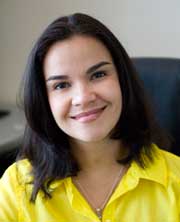
Anjenys Gonzalez, CASA Executive Director
“We did not anticipate the results at all. We were floored,” Gonzalez said. “We said, ‘Ok, we need to change gears. We need to do something about this,’ and we decided to start this [domestic violence] program.”
Miami attorney Julio Jaramillo, then a member of both CASA’s board and the Bar Foundation board, encouraged Gonzalez to reach out to the Foundation.
The result was the establishment of the Bar Foundation’s Small Program Special Needs Grant Program, which has been one of the major funders of HELP and CASA since 2007. Lubetsky attributes the creation of the program to the Foundation’s leadership, particularly the recognition that small agencies like hers fill an important niche in the legal services delivery system.
“They understand why these small agencies who are able to help individuals one-on-one without all the red tape are changing lives and saving lives,” she said. “We’ve helped close to 700 people since we got this grant, and quite frankly many of them would be on the streets and many of them would be dead were it not for this program.”
CASA assists about 120 domestic violence victims a year under the Violence Against Women Act and through a program that grants special visas to crime victims willing to work with law enforcement and the state attorney’s office in prosecutions.
Javed Rahman, one of two attorneys in the program, got involved in public interest law while in law school at Florida International University, where he did volunteer hours and then a Bar Foundation-funded Public Service Fellowship at Catholic Charities. At CASA, he has worked with numerous clients who were being held captive by their abusers, literally living under lock and key with no access to a telephone or the Internet.
“It’s important to have them trust you,” Rahman said. “Part of it is that one-on-one contact.”
Both organizations assign an attorney to work directly with each client throughout his or her case so that personal information does not have to be disclosed to three or four different people, and so that important details will not fall through the cracks in cases that take longer to resolve.
Bar Foundation funding for HELP and CASA has fallen from $71,000 each in the 2008-09 grant year to just under $50,000 in 2011-12 and is expected to decline further due to the steep drop in revenue from Florida’s Interest on Trust Accounts (IOTA) program, the Foundation’s primary funding source.
In the face of declining funding from the Bar Foundation and other sources, HELP has so far been able to hang on to its three attorneys, one of whom is part-time. But only because all have been willing to take 25-percent pay cuts.
“We have amazing people on our staff who are willing to ride out the storm,” Lubetsky said. “These are people who have a calling.”
She explained the common belief of the staff this way: “The difference between living with HIV and dying from AIDS should not be the amount of money in your pocket. That’s not liberty and justice for all.”
Lubetsky, a triathlete, raises money for her organization through a team of friends that collects pledges when they compete. Next up is the Miami Marathon on Jan. 27. She’s also reapplied for Ryan White funding and is hopeful she will get it back in 2013. CASA, meanwhile, holds soccer tournament fundraisers.
Jaramillo, now Florida Bar Foundation second vice president, said he has seen how programs like CASA benefit not only victims of abuse, but also the communities in which they live.
“Without the Foundation’s help, these victims and their children would simply have to endure,” he said. “The cost to society is staggering when you think about the implications. The children are drawn into a cycle of violence and abuse. They struggle in school and develop behavioral issues. When the victim is instead empowered to break free and live a productive life, the benefits accrue to everyone involved. I am really proud to be associated with an organization that recognized the need for this program and did something about it.”
